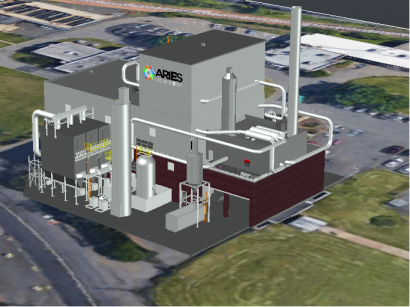
“We are pleased to reach this milestone on the Linden project,” said Gregory Bafalis, CEO of Aries Clean Energy. “The Linden facility will be the most advanced biosolids processing facility in the world utilizing our patented fluidized bed technology. By using our environmentally friendly, renewable system, we will convert biosolids into completely renewable, beneficial products.”
Equity for the project comes from Aries Clean Energy and Spring Lane Capital. “We are thrilled to support the Aries team on this and future projects,” said Nikhil Garg, General Partner at Spring Lane.
The facility will be housed in a re-purposed building within the Linden Roselle Sewerage Authority complex. Aries Clean Energy build-own-operate business model provides no financial risk for LRSA. It will process 430 tons of biosolids per day while producing 22 tons of biochar. The biochar will be used as a substitute for fly ash in concrete. It is a closed-loop system that will require no fossil fuels during operations.
Construction begins immediately, with full operations anticipated in fourth quarter 2020. Sixty new construction jobs are expected during the construction phase of this project and 14 long-term, skilled jobs to operate the plant.
“The city of Linden is proud to lead the way with this renewable energy technology. We are pleased to be a model for other cities to follow,” said Mayor Derek Armstead, City of Linden.
Construction will be led by Riggs Distler & Company, Inc., of Cherry Hill, New Jersey.
“Our team is excited to be part of this project,” said Stephen M. Zemaitatis, Jr., President & CEO of Riggs Distler. “It will be particularly rewarding for our employees to see their hard work result in the construction of a world-class facility that will make our community greener and healthier.”
The patented, Aries fluidized bed gasification system is carbon negative and captures methane (with a global warming impact 23 times greater than CO2) that would otherwise be released into the atmosphere. By reducing the number of trucking miles previously used to dispose of the biosolids, greenhouse gases will also be reduced.

